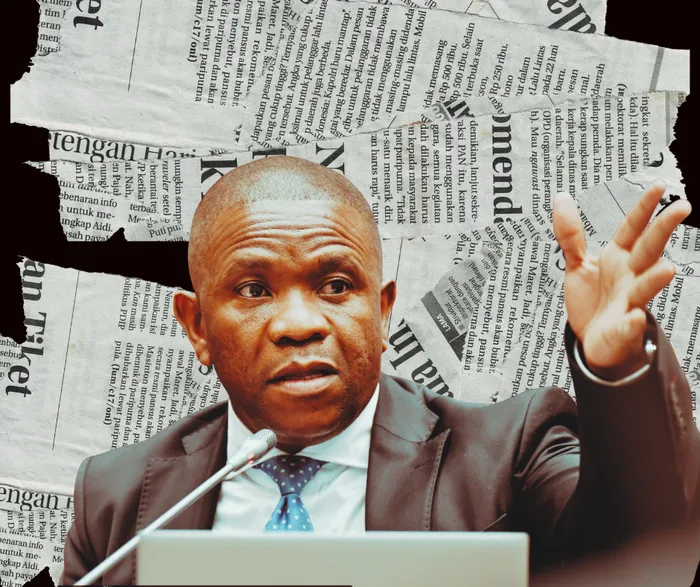Mkhwanazi breaks silence on media storm: ‘I respect the press, but…’

KwaZulu-Natal Police Commissioner Mkhwanazi defends his controversial statements on journalists, asserting that accountability is essential for upholding human rights in South Africa.
Image: Independent Media / IOL Graphics
KwaZulu-Natal Police Commissioner, Lieutenant-General Nhlanhla Mkhwanazi has defended his recent comments on the role of journalists, saying his call for investigations into rights violations does not amount to an attempt to suppress the media.
Speaking exclusively to IOL this week, Mkhwanazi praised South Africa’s robust press for keeping the public informed but stressed that the media shares responsibility for upholding human rights, including the right to dignity.
“I appreciate the work of many journalists and the media’s role in society. However, the Bill of Rights protects human dignity under our Constitution. When I addressed the ad hoc committee in Parliament last week, I urged lawmakers to ensure the state protects these rights – even against violations by journalists. I have personally been a victim of such violations, and the pattern adopted by some journalists is worrying,” he said.
Mkhwanazi clarified that his comments were not meant to curtail press freedom but to emphasise legal accountability for all.
“The law permits investigations against those who infringe on constitutional rights, and this must happen without fear or favour. Everything I said was within the parameters of the law,” he told IOL.
His remarks come after backlash from the South African National Editors’ Forum (SANEF) and several media outlets. SANEF criticised Mkhwanazi’s call for journalists to be investigated – and jailed – if found guilty of spreading misinformation or pursuing a personal agenda. He cited News24, City Press and Sunday Times as examples, urging that they be probed by crime intelligence.
Mkhwanazi, however, denied that he is advocating for media repression.
“I am not a politician, nor do I hold any executive authority. It is up to the state to decide whether to protect people’s rights,” he said.
IOL News